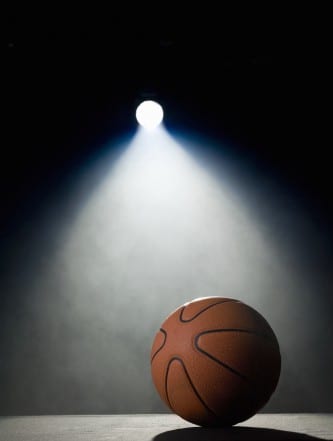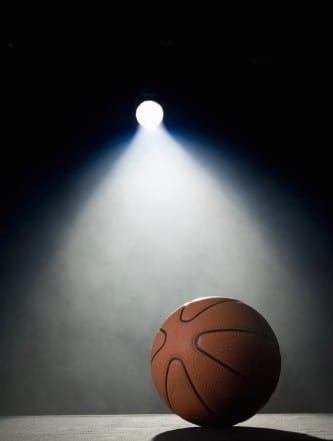 It was the conservative right’s political version of a buzzer-beater.
It was the conservative right’s political version of a buzzer-beater.
While real issues swirled around North Carolina — economic, educational, environmental — the state’s General Assembly held a hurried special session to discuss … bathrooms.
Well, they did not actually discuss them. In just a couple of hours, and with virtually no public input, the legislators passed House Bill 2. It repealed an ordinance passed the previous month in Charlotte, which provided “public accommodation” protection to LGBT people (including allowing transgender folks to use the bathrooms of the gender with which they identify).
A few days later, Mississippi legislators enacted a law that would allow individuals, religious organizations and certain businesses with “sincerely held religious beliefs or moral convictions” that marriage should be between one man and one woman to discriminate against LGBT people.
Reaction was swift. Major corporations — including Charlotte-based Bank of America — blasted the North Carolina legislation and threatened action. Bruce Springsteen canceled a concert in the state. Charles Barkley told the NBA to move the 2017 All-Star game away from Charlotte. And now Michael Jordan has given his state until the end of the month to retreat or he will move the Hornets out of state.
Barkley and Jordan’s stands are instructive. As important as business and entertainment are, sometimes the sports world can have the greatest impact in areas that (at first) may not seem to have anything to do with LGBT issues.
Pat Griffin is a founding leader of the LGBT Sports Foundation. As the two states weathered a storm of national criticism — and stuck to their anti-gay guns — she circulated a letter among her group’s members.
The letter was addressed to the National Collegiate Athletic Association. Griffin wanted to make sure that one of the most powerful organizations in the U.S. sports world understood the impact the two states’ laws would have on colleges in general, and student-athletes and coaches in particular.
Griffin cited hypothetical examples. Suppose a college sports team travels to a state with such legislation, and an athlete or staff member used what the law considers to be the “wrong” public bathroom or locker room. Suppose an athlete or coach is refused service in a restaurant or hotel, based on the manager’s perception that that person is LGBT. Suppose someone is denied medical care, based on the healthcare provider’s religious belief. Each of those situations could arise, based on North Carolina and Mississippi’s bills.
Griffin also wondered about the implications if a governor or university president refused to provide funds for travel to states with discriminatory laws. She also asked what would happen if an individual student-athlete, coach or staff member refused to travel to such a state.
And, she noted, the NCAA itself has scheduled conventions, professional meetings and competitive events in states that single out LGBT people for discriminatory treatment. She said the NCAA put them at risk of discrimination… or of losing their jobs.
Griffin noted that the federal legislation known as Title IX prohibits discrimination on the basis of gender identity and sexual orientation. Those prohibitions directly contradict state laws targeting LGBT people.
She, and the letter’s many signees, urged the NCAA to make a strong public statement condemning legislation that permits discrimination based on sexual orientation and gender identity; back up that statement with consequences (for example, not allowing them to host NCAA-sponsored events); provide guidelines to schools on how to protect student-athletes and staff while competing in states with discriminatory laws; amend NCAA bylaws to permit individuals and entire athletic departments to refuse to travel and compete against universities and states that discriminate, and redouble the organization’s commitment to diversity and inclusion programs and resources.
Griffin wrote her letter a few days after the most dramatic NCAA men’s college basketball championship game ever. Villanova won on a dramatic buzzer-beater against the University of North Carolina. Between that school and Duke, the state has been home to nine national champs in the last 25 years.
That led LGBT sports activist Cyd Zeigler to write on his Outsports website: “As reaction to the North Carolina law came pouring across social media, I found myself again shaking my head at the sports world’s utter failure to definitely address LGBT issues, get ahead of these kinds of discriminatory developments, and lead our society on LGBT equality.” Zeigler faulted the NCAA for not putting more pressure on the state of North Carolina. (Or Texas. The Final Four was held in Houston, a city that voted last year to legalize LGBT discrimination.)
“It’s impossible to believe the NCAA would stand by if an institution banned black students,” Zeigler wrote. He urged the NCAA to immediately withdraw 2017 and ’18 men’s basketball tournament games from North Carolina — and other championship events. “No more talking,” he said. “No more meetings.”
Bruce Springsteen canceled a concert with two days’ notice. The NCAA has a year to act.
The ball is in their court.
— Dan Woog
















